Robert E. Eakin Endowed Centennial Scholarship
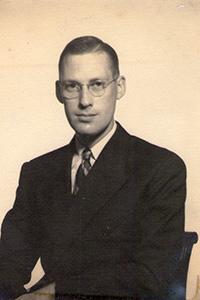
Robert E. Eakin as a UT assistant professor of chemistry 1946
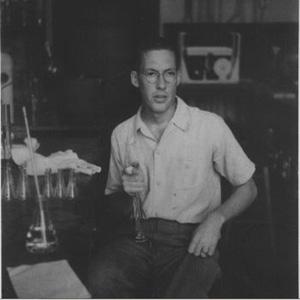
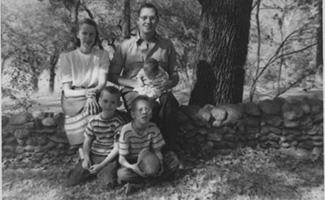
Robert E. Eakin family in the front yard of their home, 1950; front row left to right: Pat, Tim; back row left to right: Esther, Robert E. holding baby Mike.
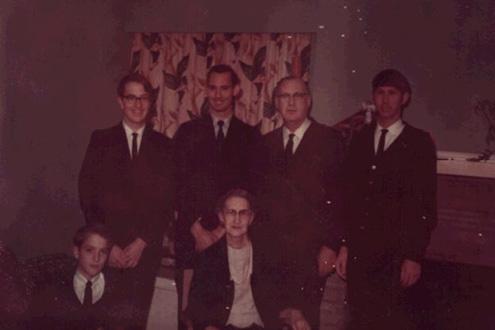
Robert E. Eakin with his children and his mother, 1968; front row left to right: Kelly Eakin, Netta Eakin; back row left to right: Mike, Pat, Robert E., Tim.
Eakin’s eldest son, Tim, who is also a scientist, says his father was a constant mentor and motivator, keeping him on track through high school and college. The elder Eakin helped his son set a strategic plan for his time as a UT undergraduate, helping him select electives and instructors, paving the way for Tim’s acceptance into the competitive graduate program that lead to a rewarding career in science. Tim says of his father:
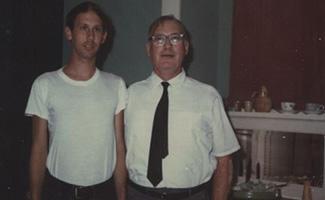
Robert E. Eakin late in his career (right) with his oldest son Tim (left), 1968
Half a century later people still contact Tim about Eakin’s prescient realization that ribonucleotide cofactors were likely to have been early catalysts in the evolution of metabolism, a view expounded in a seminal paper published in the Proceedings of the National Academy of Sciences in 1963.
How to Give
Learn more at giving.utexas.edu
Search Endowments
Look for inspiring stories
